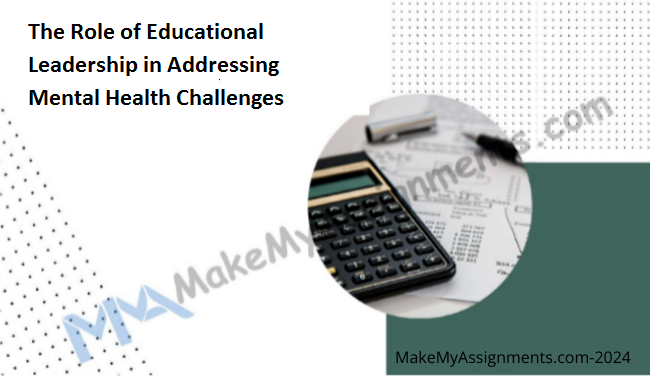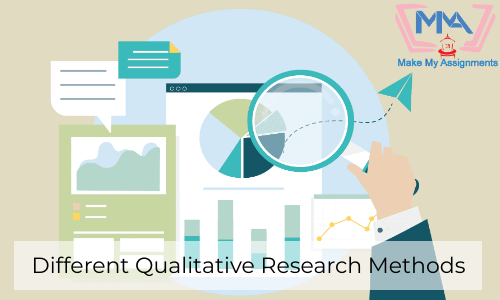
The Role of Educational Leadership in Addressing Mental Health Challenges
In recent years, the conversation surrounding mental health has become increasingly prevalent, and rightly so. Mental health challenges affect individuals across all demographics, including students within educational institutions. As awareness grows, so does the recognition of the vital role educational leadership plays in addressing these issues. From fostering a supportive environment to implementing effective strategies, educational leaders are at the forefront of promoting mental wellness among students. Let’s delve deeper into the significance of their role and the strategies they employ in tackling mental health challenges within educational settings.

- Creating a Supportive Environment: Educational leaders, including principals, administrators, and counselors, are responsible for cultivating a supportive and inclusive environment within schools. This entails fostering a culture where students feel safe, valued, and understood. By promoting open communication, actively listening to student concerns, and fostering a sense of belonging, leaders lay the foundation for addressing mental health challenges effectively.
- Raising Awareness and Reducing Stigma: Educational leaders have the platform to educate students, teachers, and parents about mental health issues, thereby reducing stigma and misinformation. By integrating mental health education into the curriculum and organizing workshops, seminars, and awareness campaigns, leaders can promote understanding and empathy. These efforts not only encourage help-seeking behavior but also create a more compassionate school community.
- Implementing Comprehensive Support Systems: Effective educational leadership involves establishing comprehensive support systems that cater to the diverse needs of students. This may include access to school counselors, psychologists, and mental health professionals who can provide assessment, counseling, and intervention services. Additionally, leaders can collaborate with community organizations and healthcare providers to ensure students have access to external resources when needed.
- Promoting Self-Care and Resilience: Educational leaders play a crucial role in promoting self-care and resilience among students. By integrating social-emotional learning (SEL) programs into the curriculum, teaching coping skills, and promoting healthy lifestyle habits, leaders empower students to manage stress, build resilience, and prioritize their mental well-being. Furthermore, modeling self-care practices and prioritizing staff well-being contribute to a positive school culture that values mental health.
- Fostering Collaborative Partnerships: Addressing mental health challenges requires collaboration among various stakeholders, including educators, parents, healthcare professionals, and policymakers. Educational leaders serve as facilitators in forging these partnerships, bringing together individuals and organizations to develop holistic approaches to supporting student mental health. By leveraging community resources and advocating for policies that prioritize mental health, leaders can create a more robust support network for students.
- Data-Informed Decision Making: Educational leaders utilize data to identify trends, assess the effectiveness of interventions, and make informed decisions regarding mental health initiatives. By collecting and analyzing data on student well-being, academic performance, and behavior, leaders can identify areas of concern and tailor interventions to address specific needs. This data-driven approach ensures that resources are allocated efficiently and that interventions are evidence-based and impactful.
In the journey to address mental health challenges among students, collaborative efforts between educational institutions and supportive platforms like MakeMyAssignments (MMA) can significantly enhance the effectiveness of interventions. Here’s how MMA can play a vital role in supporting students’ mental well-being in alignment with educational leadership initiatives:
- Accessible Resources: MMA can serve as a valuable resource hub, providing students with access to educational materials, study guides, and assignment help services. By easing academic pressures and reducing stress associated with coursework, MMA contributes to promoting a healthier balance between academic responsibilities and self-care.
- Mental Health Awareness Campaigns: MMA can collaborate with educational leaders to raise awareness about mental health issues through targeted campaigns and informative content. By incorporating mental health resources, tips for stress management, and self-care strategies into their platform, MMA can empower students with the knowledge and tools to prioritize their well-being.
- Integration of Support Services: MMA can integrate mental health support services into their platform, such as access to counselors or mental health professionals for students seeking assistance. By offering confidential channels for students to express their concerns and receive support, MMA ensures that help is readily available and easily accessible, complementing the support systems established within educational institutions.
- Promotion of Self-Care Practices: MMA can promote self-care practices among students by providing resources and guidance on maintaining a healthy work-life balance, managing academic stress, and practicing self-care techniques. By incorporating wellness tips, mindfulness exercises, and relaxation techniques into their platform, MMA encourages students to prioritize their mental health while pursuing their academic goals.
- Collaborative Partnerships: MMA can collaborate with educational institutions, mental health organizations, and community stakeholders to develop comprehensive support networks for students. By leveraging partnerships and pooling resources, MMA enhances the reach and effectiveness of mental health initiatives, ensuring that students receive holistic support both within and outside the classroom.
- Data-Driven Insights: MMA can utilize data analytics to identify trends and patterns related to student well-being and academic performance. By analyzing user engagement metrics, feedback, and usage patterns, MMA can gain valuable insights into the evolving needs of students and tailor their services accordingly, contributing to more targeted and effective support strategies.
By harnessing the strengths of collaborative partnerships and leveraging the reach and accessibility of online platforms like MakeMyAssignments, educational institutions can enhance their efforts in supporting student mental health. Together, educational leaders and platforms like MMA can create a supportive ecosystem that empowers students to thrive academically, emotionally, and socially, fostering a culture of holistic well-being within educational communities.





